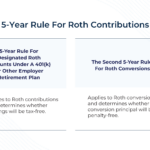Enjoy the current installment of "weekend reading for financial planners" - this week's reading kicks off with the latest announcement from FINRA, that they are putting a heightened scrutiny on IRA rollovers, just as the Department of Labor is anticipated later this year to issue its own fiduciary rule on IRA rollovers, and raising the question of whether FINRA is trying to accommodate and prepare for the DOL rule or reassert its own jurisdiction on the issue. There's also an interesting article covering a recent survey from Spectrem Group that suggests prospective clients may have their own views about what "wealth management" means that differs from how advisors view the issue.
From there, we have a couple of practice management articles this week, including a look at how advisors may generate the most clients from client referrals but the best clients come overwhelmingly from Centers of Influence; a story of how one young advisor climbed the ladder from intern to CEO of an independent RIA and what it takes to climb the ladder; and a look at some of the differences in what Gen X/Y clients expect from their advisors versus baby boomer clients (hint: the Gen X/Y clients laughed out loud at the thought of having a 90-minute meeting).
From there, we have several more technical financial planning articles this week as well: a challenging article that questions whether commodities futures funds are really living up to their promise of high ("stock-like") returns with low correlations; a discussion of whether we may already be in another housing bubble, this time driven not by consumers but by private and institutional investors, as affordability hits new all-time lows; a look at whether client fears that their children won't be able to get into any college may be completely overblown; and a discussion of how the file-and-suspend Social Security claiming strategy, typically used for married couples, may actually be an effective approach for singles as well as a form of "delayed benefits insurance."
We wrap up with three interesting articles: the first is a discussion from an advisor who blogs about the benefits that he/she finds, beyond just the opportunity to develop business, from helping to clarify thinking to a mechanism for accountability; the second is an interesting discussion for technology innovation commentator Vivek Wadwha about how the United States may be poised for a new renaissance driven by real integration of the digital world into all industries that could spur a new wave of economic growth; and the last is an interesting discussion of how financial plans might be made more engaging for clients by inviting them to find images of their goals that they identify with, and then using those images to help them better visualize, connect with, and stay accountable to pursuing their goals. Enjoy the reading!





